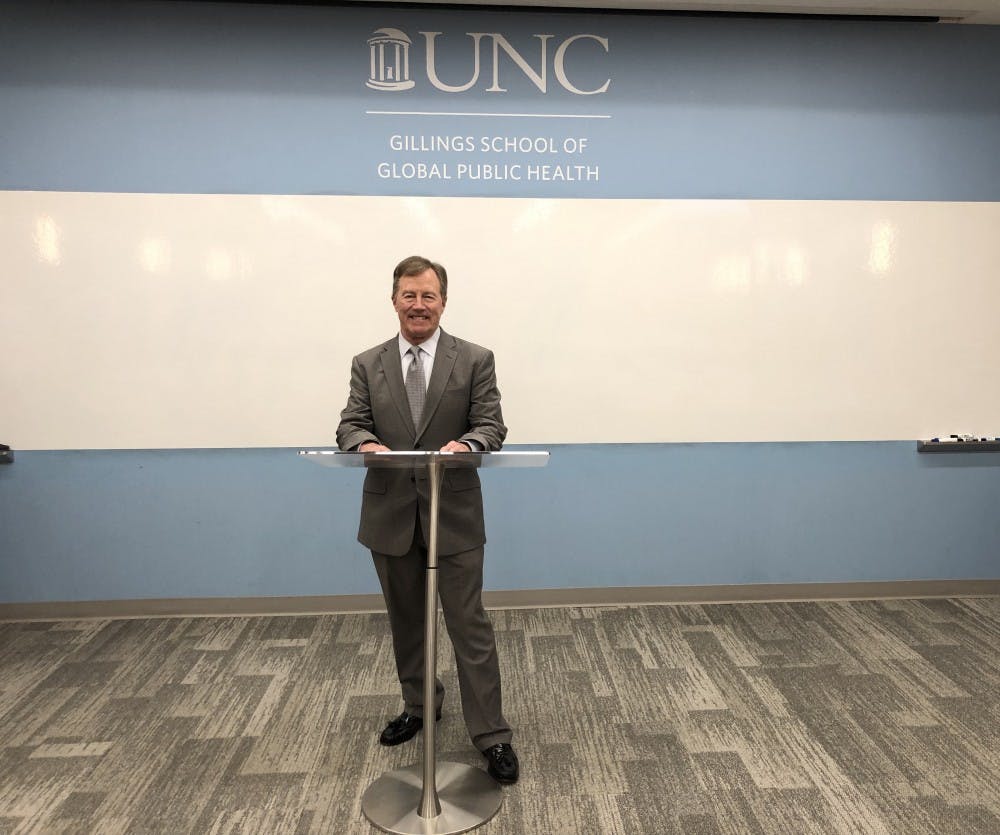A former United States Marine Corps Brigadier General discussed how climate change is impacting national security at the UNC Gillings School of Global Public Health Friday.
The Asia-Pacific region, which has been an important operation zone for the U.S. Navy, will likely experience significant changes in operation strategies over the next 50 years because of forced migration caused by climate change, said former Brigadier General Stephen A. Cheney.
“When you look out 20, 30, 50 years, there is going to be an incredible migration problem in the Pacific area of operations,” Cheney said.
Researchers define climate change as significant changes to global temperature, precipitation rates and wind patterns. Climate change leads to significant environmental consequences such as higher global temperatures, which cause environmental issues like sea level rise.
There are also links between climate change and increased terrorist activity in Africa, Cheney said. As sea level rise forces people away from coastal areas, it leads to mass migrations, and an opportunity for terrorists to take advantage. This has already occurred in the Lake Chad region in Africa.
“When you have a migrant who can’t take care of their family and a terrorist comes up to them and says, 'I can give you food. I can give you water.' In some cases to the males, 'I can give you a wife. Will you come join my organization?'” Cheney said.
Climate change has also been an exasperating factor with the Arab Spring and the ongoing civil war in Syria, he said.
“They had a huge drought in Russia in 2009, 2010, 2011 — decimated the wheat crop,” Cheney said. “As a consequence, they couldn’t even feed their own people with the wheat they wanted in Russia. So Putin declared an embargo of wheat exports out of Russia, to anywhere, in particular, the Middle East. As a consequence, the price of wheat escalated dramatically in the Middle East. And of course, bread is the main stable in that area.”
While climate change has the potential to cause significant problems if it is not addressed, negative effects can be reversed by reducing carbon dioxide emissions, he said.



